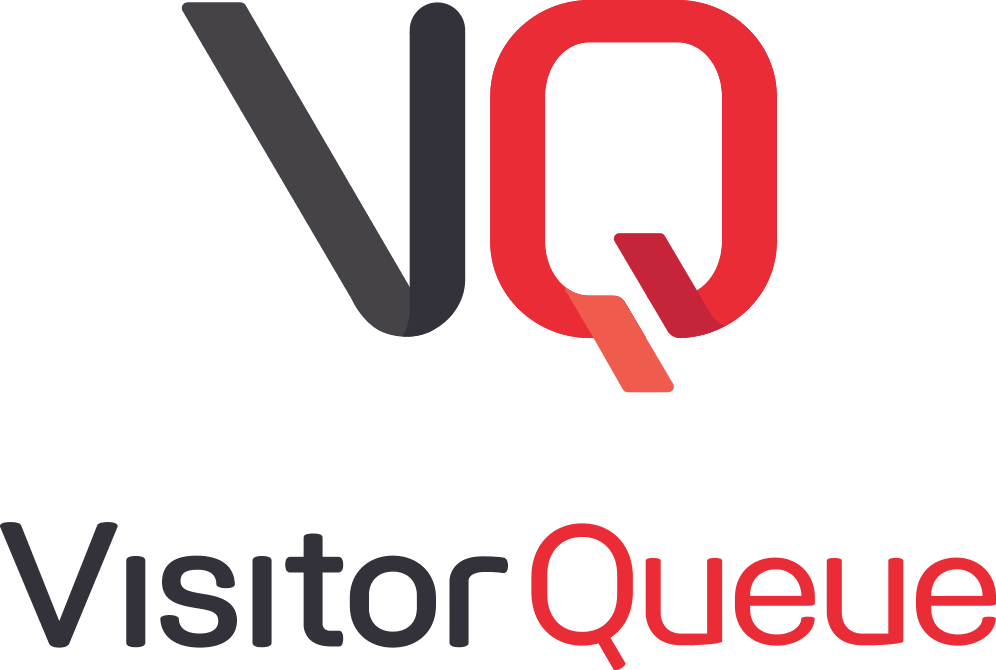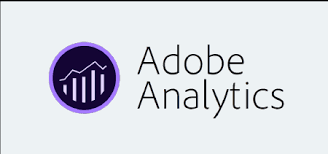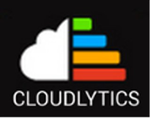What Are The Recent Trends In Web Analytics Tools?
Web analytics solutions have become an essential part of digital marketing strategy in recent years. These technologies help businesses gain vital information into user behavior, website performance, and overall online presence. In today's digital market, organizations must stay current on web analytics developments in order to obtain a competitive advantage and maximize their online presence.
Here are some recent trends in web analytics tools that buyers should keep in mind when selecting the best solution for their organization.
1. Transition To AI And Machine Learning: One of the most significant trends in web analytics solutions is the introduction of artificial intelligence (AI) and machine learning (ML) capabilities. These technologies enable more precise and detailed data analysis, providing organizations with more valuable insights into their website performance. AI and machine learning can assist discover user behavior trends, provide personalized content, and make data-driven decisions to improve website performance.
2. Emphasize Audience Segmentation: As personalized marketing gains traction, online analytics solutions are emphasizing audience segmentation. These tools enable firms to segment their audiences based on demographics, location, interests, and behaviors. This level of segmentation enables more focused marketing strategies, which lead to increased engagement and conversions.
3. Real-Time Data Reporting: In today's fast-paced corporate environment, access to real-time data is critical. Many web analytics platforms now provide real-time reporting, allowing organizations to gain immediate insights into their website performance. Real-time data reporting allows organizations to make quick decisions and adapt to changes in user behavior.
4. Integration With Other Marketing Tools: Web analytics solutions no longer work in isolation. The current tendency is to integrate with other marketing tools including email marketing, social media management, and advertising platforms. This connection delivers a more complete picture of a company's online operations, allowing for more effective optimization and strategy development.
5. Emphasis On Data Privacy And Security: As data privacy concerns grow, online analytics solutions prioritize the security and protection of user data. Many products have extensive security features like data encryption, granular access restrictions, and adherence to privacy standards such as GDPR and CCPA. This ensures that enterprises can collect and analyze data while respecting user privacy.
Benefits Of Using Web Analytics Tools
Using web analytics tools is critical for any organization seeking to flourish in today's highly competitive digital environment. These technologies provide significant insights into website performance, user activity, and overall online presence, empowering organizations to make data-driven decisions for improvement and growth.
Let's look at the benefits of employing web analytics tools and how they may help businesses reach their objectives:
1. Accurate And Real-Time Data: Web analytics solutions collect and publish data in real time, giving businesses the most up-to-date information on the performance of their websites. This enables organizations to make quick changes and enhancements to their online strategy.
2. Tracking User Behavior: Web analytics solutions can help firms gain a better knowledge of their target audience. This covers demographics, interests, preferences, and on-site behavior, which enables businesses to customize their marketing efforts accordingly.
3. Identifying Strengths And Weaknesses: Web analytics tools can assess website data such as bounce rates, time on site, and conversion rates. This enables firms to discover areas for improvement and build on their strengths in order to improve overall performance.
4. Optimizing Marketing Efforts: Web analytics tools enable organizations to track the efficacy of their marketing campaigns, such as social media, email, and PPC advertising. This enables them to fine-tune their strategy to reach the proper audience while maximising ROI.
5. Improving Website Usability: Web analytics tools provide information about how people traverse a website, revealing places that may cause frustration or misunderstanding. This information can assist organizations enhance website usability, resulting in a better overall user experience.
6. Tracking And Measuring Goals: Web analytics solutions enable organizations to create and track specific objectives, such as sign-ups, transactions, or downloading. This allows businesses to assess the effectiveness of their website and marketing activities and make required changes to obtain the desired results.
7. Competitive Advantage: Using web analytics solutions allows firms to keep ahead of industry trends, consumer behavior, and website performance. This data can help them remain ahead of the competition and make educated decisions about future expansion.
Important Factors To Consider While Purchasing Web Analytics Tools?
When it comes to acquiring web analytics solutions, you must evaluate a variety of aspects to ensure that you are making an informed and effective choice. These technologies are critical in monitoring, analyzing, and reporting website data, which can help businesses improve their performance and achieve their objectives.
The following are the main elements to consider while purchasing web analytics solutions.
1. Business Goals And Objectives: Before choosing a web analytics solution, you must first understand your company's goals and objectives. This will assist you in selecting a product that meets your individual requirements while also providing useful data for measuring your progress.
2. Capabilities And Functionality: Each web analytics tool has unique capabilities and functionalities. It is critical to select a tool that includes the capabilities you need for your organization, such as real-time tracking, customisable reporting, and connectivity with other applications.
3. User-Friendly Interface: Any web analytics tool should have an easy-to-use interface. It should be simple to navigate, with facts given in a clear and structured format. This will save you time and effort when interpreting and evaluating the data.
4. Data Protection And Privacy: With the rise of online data breaches, it is critical to select a web analytics platform that prioritizes data protection and confidentiality. Look for tools that provide data encryption, comply with privacy rules, and allow you to limit data access.
5. Scalability And Compatibility: Your web analytics platform should be able to scale with your organization as it grows. It is also critical to ensure that the tool is compatible with your website's platform and any other tools you may be utilizing.
6. Cost And Budget: Web analytics tools come in a variety of costs. It is critical to evaluate your budget and select a tool that provides the most value for money. Look for features that are essential to your organization and avoid paying for unneeded add-ons.
7. Customer Support: Technical issues or questions may develop while utilizing a web analytics platform. It is critical to select a product that offers dependable and accessible customer assistance in order to handle any concerns quickly.
8. Free Trials And Demos: Most web analytics software provide free trials or demonstrations. Take use of these to evaluate the tool's features and functionality and determine whether it matches your needs.
What Are The Key Features To Look For In Web Analytics Tools?
Web analytics solutions are vital for any company trying to boost its online presence and acquire useful insights into user behavior. However, with so many options available in the market, it might be difficult to select the best one for your specific needs.
To help you make an informed decision, these are the essential characteristics to look for when comparing web analytics software.
1. Data Collecting And Tracking Capabilities: The fundamental function of a web analytics tool is to collect and track data. Look for a solution that supports several data sources, such as website traffic, social media, and email marketing, to gain a comprehensive picture of your online presence. It should be able to correctly track user behaviors like clicks, downloads, and form submissions.
2. Real-Time Reporting: Time is of the essence when it comes to data analysis, particularly in today's fast-paced online environment. Look for a web analytics platform that provides real-time reporting, allowing you to track your website's performance in real time and make informed decisions based on it.
3. Customization And Segmentation: Each business is unique, as are its analytics requirements. A decent web analytics platform should include customisable dashboards and reports, allowing you to focus on the indicators that are most important to your organization. It should also provide segmentation options, which allow you to divide down data based on factors such as location, device, or traffic source.
4. Mobile Compatibility: With the proliferation of mobile devices, it is critical to monitor user behavior across several devices. Make sure the web analytics technology you chose is mobile compatible, so you can monitor and analyze data from both desktop and mobile users.
5. Integrations: Your online analytics solution should be able to work with other key digital tools including CRM, email marketing, and advertising platforms. This provides a more complete perspective of the whole marketing funnel and enables data-driven decision-making.
6. Data Visualization: Visual representations are the most effective approach to understand complex data. Look for a web analytics platform that provides simple and visually attractive charts and graphs to assist you better comprehend your data.
7. User-Friendly Interface: A web analytics tool is only valuable if you can navigate and use it effectively. Consider a tool with an easy-to-use interface that allows you to access and evaluate data without requiring technical expertise.
8. Custom Alerts And Notifications: Configure alerts and notifications to keep track of changes in your website's performance and user behavior patterns. This function is especially valuable for firms with several team members because it keeps everyone updated on any big developments in real time.
9. Support And Training: The web analytics tool vendor should give a dedicated support team as well as training materials. This ensures that you can fully utilize the tool's functionality and effectively troubleshoot any issues.
Which Industries Can Benefit The Most From Web Analytics Tools?
Web analytics tools are powerful resources that provide useful information about website performance and user activity. While these tools can aid a variety of industries, some will benefit more than others.
The following are the top industries that can profit from adding web analytics technologies into their business strategies.
1. E-commerce Industry: The e-commerce industry feeds on data, and web analytics tools provide a wealth of information to online retailers. By tracking indicators like as conversion rates, bounce rates, and customer behavior, e-commerce enterprises may obtain a better knowledge of their customers and make data-driven decisions to improve their website and sales.
2. Digital Marketing: In today's fast-paced world of digital marketing, monitoring campaign success is critical. Web analytics solutions enable marketers to monitor the effectiveness of their online advertisements, email marketing initiatives, and social media campaigns. This data enables them to determine the most effective channels and make adjustments to boost ROI.
3. Media And Publishing: Organizations rely substantially on internet visitors to generate revenue. Web analytics solutions provide vital insights into the types of content that resonate with their target audience, allowing organizations to modify their content strategy and increase interaction. Furthermore, analytics data can assist publishers determine which advertising placements are most efficient in driving revenue.
4. Healthcare Industry: Web analytics tools can help the healthcare industry, particularly with patient interaction. These technologies can help hospitals and clinics track online appointment bookings, patient questions, and website traffic. This information can assist healthcare providers improve the user experience on their website and better understand their patients' needs.
5. Tourist And Hospitality: The travel and tourist business relies heavily on website traffic for bookings. Web analytics technologies reveal vital information about user activity, such as the most popular destinations, booking trends, and search phrases. This information can assist hotels, airlines, and other tourism organizations customize their marketing campaigns and improve their web presence.
Conclusion
Conclusion: Choosing the correct web analytics solution for your company is critical for measuring and optimizing your online performance. Before making a selection, you should thoroughly consider your needs and objectives. Consider the size and complexity of your website, your budget, and the level of support and customization you need. While Google Analytics is a popular and free alternative, it may not be appropriate for many businesses.
Other technologies, such as Adobe Analytics and IBM Digital Analytics, provide more extensive features and capabilities for larger, more complicated websites. Furthermore, it is critical to regularly monitor and analyze the performance of your chosen analytics tool to verify that it is meeting your requirements and providing accurate and valuable information. With the correct web analytics solution, you can make more educated decisions, optimize your website, and ultimately improve your business's outcomes.






















